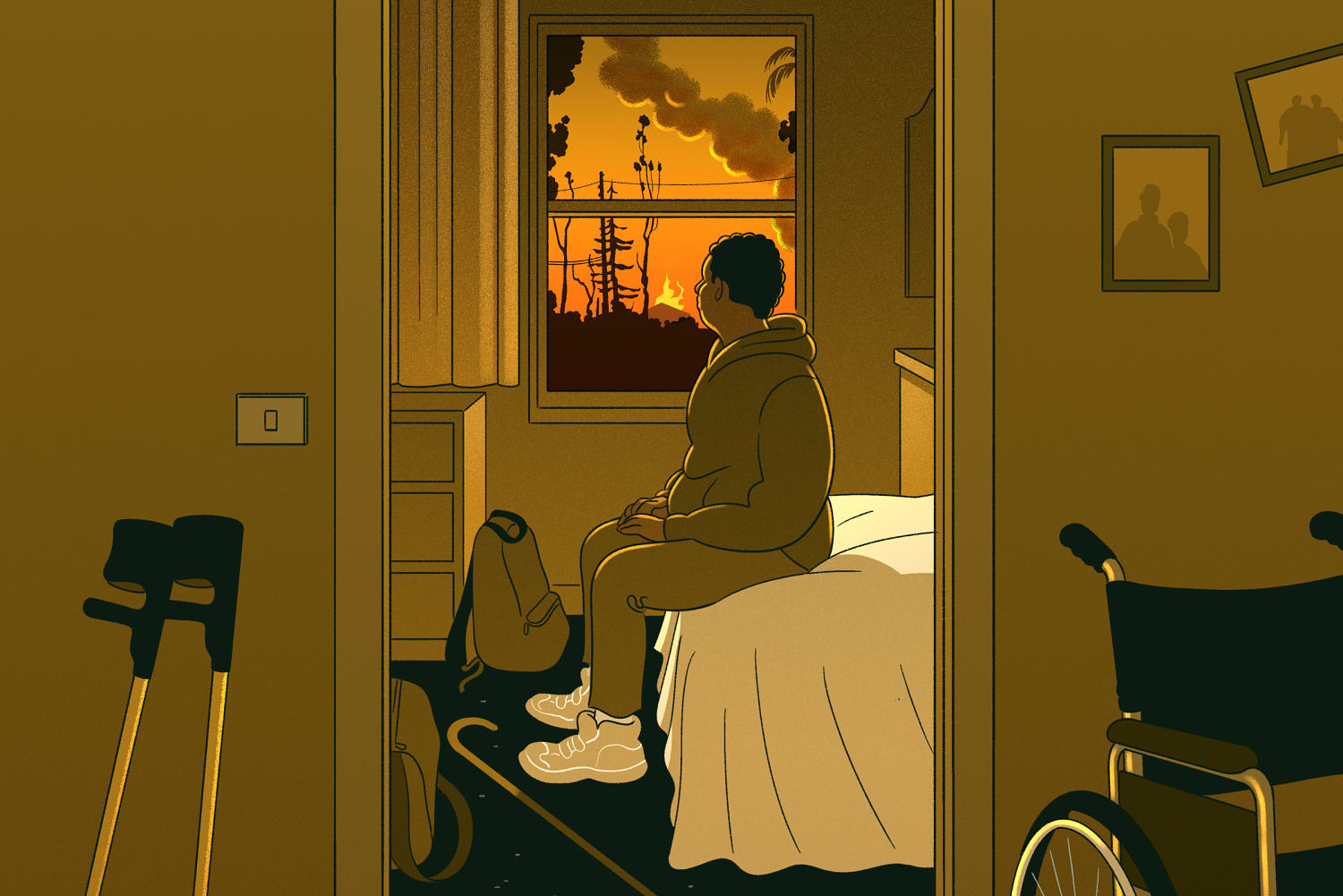
Scammers may go around impacted neighborhoods posing as government officials or private contractors requesting upfront payments for home repairs that never come to fruition.
“They go and prey on the most vulnerable people,” said Curtis Hill, the supervising advocate for outreach and disaster response for Disability Rights North Carolina, who has seen three hurricanes hit eastern North Carolina in the past eight years.
Trejo, from Los Angeles County, expects scams to continue after the fires.
“In previous situations, we have seen that especially older adults and adults with disabilities could be targeted,” Trejo said. “We’re already working to start doing community education and outreach. We’ve been on that already for over a week, because there was so much loss of home.”
Experts say the neglect of people with disabilities during natural disasters is in large part due to their exclusion from the planning process.
“Policymakers and government people should be interacting with individuals with disabilities and their representative organizations,” Stein said. “They know their lives better than anyone else does.”
In January, L.A. County officials proposed keeping a database of addresses with residents who might have trouble evacuating, an idea that some are skeptical about.
“What sounds like a great and simple concept on paper … in actuality is super complex and been met with resounding ‘no’ from all sides,” Robert Burress, program manager for emergency management and disaster services in South Carolina, told NBC News via email. “Especially from the vulnerable communities.”
Some members of the disabled community have been working to support each other during disasters for years. The Partnership for Inclusive Disaster Strategies, a disability-led nonprofit, maintains a hotline for people with disabilities to request help in a disaster.
Experts encourage everybody, disabled or otherwise, to have a personal preparedness plan in the event of a disaster.
“The best advice I can give to anyone disabled or not is first, know your neighbor,” Burress said. “More times than not, your neighbors are the ones going through the same disaster right beside you. Those are the people that will check on you fastest and know when you need help.”
